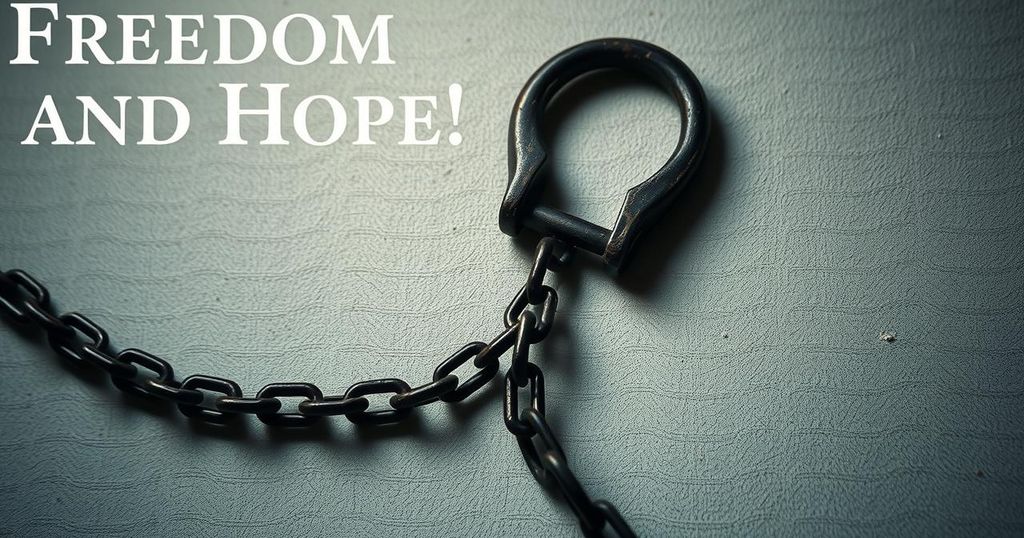Israel has released more than 640 Palestinian prisoners in exchange for four Israeli hostages amidst a fragile Gaza ceasefire. Many released prisoners are reported to be in poor condition due to past abuses. While families celebrated their return, violence continues in the West Bank, raising questions about Israel’s broader intentions regarding Palestinian territories.
In a significant development amidst the ongoing Gaza ceasefire, Israel has released over 640 Palestinian prisoners in exchange for the bodies of four Israeli hostages. This release, initially scheduled for the previous Saturday, was postponed by Israeli Prime Minister Benjamin Netanyahu due to what he referred to as “humiliating ceremonies” conducted by Hamas during prior hostage releases.
According to information from the Palestinian official news agency Wafa, more than 400 released prisoners have returned to Gaza, many of whom were subsequently admitted to the Gaza European Hospital in Khan Younis. Saleh Al-Hams, the nursing director at the hospital, reported that these individuals are in a severe state of emaciation, with some unable to walk as a result of extreme beatings and torture experienced in Israeli detention facilities. This alarming reminder emphasizes the often brutal conditions faced by Palestinian prisoners in Israel.
In Ramallah, jubilant families gathered to greet 37 of the freed prisoners near the Ramallah Cultural Palace and the Mahmoud Darwish Museum Square. Meanwhile, 97 other prisoners have been temporarily sent to Egypt while awaiting acceptance by other nations. The Palestinian Red Crescent Society has shared that they received a former prisoner in a coma, necessitating his transfer to a hospital in the West Bank for further care.
Hamas responded to the situation on its Telegram channel, asserting that attempts by Israel to delay the prisoner release were unsuccessful. They reiterated the importance of adhering to the ceasefire terms and praised Egypt and Qatar for their roles as mediators. Moreover, Hamas indicated that the release of Israeli hostages would depend on continued negotiations and compliance with the ceasefire agreements.
Although this prisoner release has occurred, Israel has demonstrated its ongoing military intentions, with recent raids on East Jerusalem and West Bank buildings indicating a broader strategy aimed at displacing Palestinians from their homes and territories. The Palestinian Prisoners’ Club advocacy group has posited that Israel is set to release 46 additional prisoners, encompassing all women and minors from Gaza.
The recent release of over 640 Palestinian prisoners by Israel marks a pivotal moment in the fragile Gaza ceasefire. The well-being of these individuals raised serious concerns about the conditions endured in Israeli custody, highlighting the harsh realities faced by Palestinian detainees. As the situation continues to evolve, ongoing negotiations underscore the complexity of the ceasefire and the potential for future developments in this deeply rooted conflict.
Original Source: www.moroccoworldnews.com






